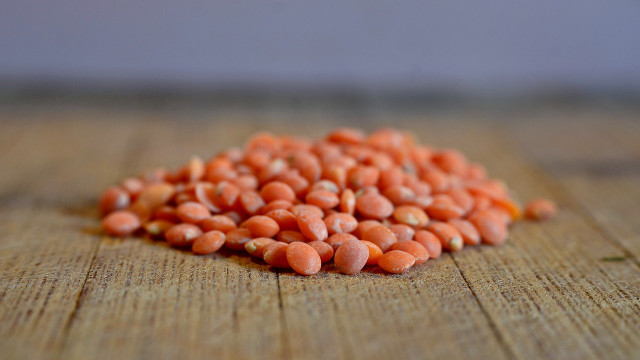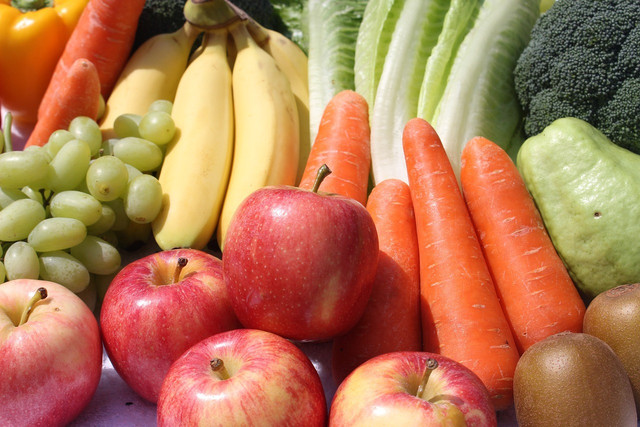
Eating a gut-friendly diet can have a positive impact on your body. We explain what you have to consider and give tips on how you can eat gut-friendly in everyday life.
Our intestines not only play an important role in the digestion and provision of nutrients and vitamins, but are also a large part of our immune system: According to the Federal Ministry of Food and Agriculture (BMEL), around 70 percent of the immune cells are located in the mucous membrane of the intestine. It is divided into the small intestine and large intestine and, with a total length of around eight meters, makes up the main part of the digestive system.
The tasks of the intestine are:
- the chemical breakdown of food
- the intake of the individual components of the food
- the elimination of the remains
In addition, the intestine is also involved in the regulation of the water balance, since it can absorb and excrete large amounts of water.
The role of the intestine in the defense against pathogens
According to the BMEL, the gut plays an important role in fighting off various diseases. The intestinal mucosa serves as a barrier for pathogens, for example by producing antibacterial substances. In addition, there are defense cells in the intestine, especially lymphocytes, which form antibodies against foreign substances and use messenger substances to inform the rest of the body about a necessary defense. Also important are the intestinal bacteria, which expel foreign bacteria and also produce antibacterial substances that support the immune cells.
With the right diet, you can support your intestines with digestion and strengthen your immune system in the long term.
Tip 1: Dietary fiber for a gut-friendly diet

(Photo: CC0 / Pixabay / JerzyGorecki)
Our gut bacteria feed on fiber. In order to strengthen the “good” bacteria in your intestinal flora, you should eat a diet rich in fiber according to the recommendation of the BMEL. Dietary fiber can be found, for example, in fruit, vegetables, whole grain products, legumes, nuts and seeds.
Legumes can cause bloating in some people. When preparing it, it can help to soak dried legumes for a long time and then boil them in fresh water. You should wash legumes from the jar thoroughly with water before processing. It can also help to start with smaller amounts to get your intestines used to the legumes. Red lentils, for example, are easily digestible:
- Lentil Salad: A recipe with red lentils
- Lentil spread: Vegan recipe with red lentils
- Red Lentil Soup with Coconut Milk: Creamy Recipe
We have compiled a list of high-fiber foods with grams in this article for you:
- Fiber: Foods that contain a lot
You can find high-fiber recipes here:
- Wheat bran recipes: How to use the high-fiber grain product
- Spelled quark rolls: Recipe for the little fiber wonders
Tip 2: Fermented products support the intestinal flora

(Photo: CC0 / Pixabay / bourree)
According to the BMEL, fermented foods contain lactic acid bacteria, which are good for your intestinal flora. You can find such cultures in yoghurt, quark, buttermilk, skyr, kefir or ayran, for example:
- Yoghurt dip: 3 delicious recipes
- Make quark yourself: quick recipe with only two ingredients
- Make Skyr yourself: A simple recipe
- Make kefir yourself: simple step-by-step recipe
- Make Ayran yourself: Quick recipe for the yoghurt drink
Fermented vegetables such as fresh sauerkraut or kimchi are also recommended for an intestinal-friendly diet:
- Make sauerkraut yourself: recipe in just a few steps
- Sauerkraut salad recipe with onions and carrots: Here’s how
- Make Kimchi yourself: A recipe for the Korean specialty
- Kimchi Ramen: A recipe for the vegan soup
Tip 3: A varied diet with fruit and vegetables

(Photo: CC0 / Pixabay / LustrousTaiwan)
It is good for your intestines to eat a variety of foods. For example, you can vary fruit and vegetables. When you try new varieties, you can find out what you like and what you tolerate well.
Vegetables such as cabbage, peppers, mushrooms, leeks or cucumbers tend to be difficult to digest. Carrots, tomatoes, green lettuce, fennel or pumpkin are lighter, for example. In addition, cooked vegetables are easier to digest than raw ones. You can find recipes with easily digestible vegetables for an intestinal-friendly diet here:
- Spelled salad with fennel and pumpkin: A simple recipe
- Pumpkin vegetables: delicious recipe and possible variations
- One pot rice: recipe with tomatoes and carrots
- Green salad: 3 variations of the popular salad with dressing
When it comes to fruit, some people are sensitive to the fructose it contains. If this is the case for you, you should eat smaller portions throughout the day and ideally combine them with foods that contain fat and protein. Mueslis or shakes, for example, are ideal for this:
- Make Bircher muesli yourself
- Make your own milkshake: 3 delicious recipes – classic and vegan
Fruit puree can also be better tolerated than raw fruit:
- Make applesauce yourself: Simple recipe without sugar
- Make pear sauce yourself: Simple recipe without sugar
- Quince jam recipe: This is how you make healthy quince jam yourself
Also make sure to buy regional, seasonal and organic fruit and vegetables. With our seasonal calendar you can keep track of which varieties are available and when.
Tip 4: Beware of coffee, alcohol, sweets and snacks

(Photo: CC0 / Pixabay / mkupiec7)
Greasy or heavily spiced and sugary foods are often heavy on the stomach and, according to the BMEL, can slow down digestion. This is also the case with alcohol. As part of an intestinal-friendly diet, you should therefore eat these foods rarely and only in small amounts. If coffee causes you heartburn, you can switch to mild varieties and add some milk to make it easier to tolerate.
A diet that is too salty can also be harmful to the intestines. One study found that excessive salt intake almost completely eliminated a certain type of gut bacteria in the participating test subjects. A daily intake of two to three grams of salt is recommended.
Tip 5: Plant-based nutrition is gut-friendly nutrition
According to studies, a plant-based diet can be good for the intestinal flora. Eating vegan is not only beneficial for a variety of good bacteria in the gut, but also has positive effects on overall health, according to researchers.
Frequent consumption of red meat, on the other hand, can lead to the production of substances in our intestines due to the L-carnitine contained in meat, which is associated with an increased rate of heart disease.
Read more on Techzle.com:
- 5 tips for your gut health: How to promote it
- Balanced nutrition: 10 rules for everyday life
- Stomach-friendly food: Easily digestible food for the stomach